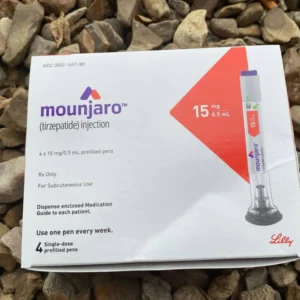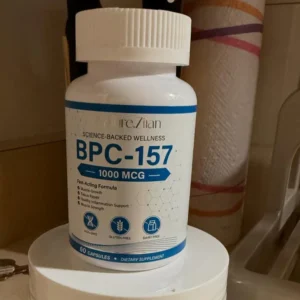Tesamorelin Peptide Buy
Tesamorelin is a synthetic 44-amino-acid peptide, a growth hormone-releasing hormone (GHRH) analog, FDA-approved as Egrifta for HIV-associated lipodystrophy. It stimulates the pituitary gland to release growth hormone (GH), increasing insulin-like growth factor-1 (IGF-1) to reduce visceral fat. Off-label, it’s researched for fat loss, muscle growth, and cognitive health. Available from compounding pharmacies like Peptide Sciences or TRT Nation, it’s prescription-only for human use and sold for research purposes.
tesamorelin vs sermorelin
Mechanisms of Action
Tesamorelin, modified with a trans-3-hexenoic acid group for stability, binds GHRH receptors, boosting GH and IGF-1 production. This enhances lipolysis, reducing visceral adipose tissue (VAT) by ~15–20% in 26 weeks, per phase 3 trials. It also improves lipid profiles and may enhance nerve regeneration and cognitive function by supporting neuronal health. Unlike exogenous GH, it preserves pulsatile GH release, minimizing side effects.
tesamorelin for sale
Fat Loss: Reduces abdominal fat by 15–20% in HIV lipodystrophy; off-label use shows similar results.
Muscle Growth: Enhances protein synthesis, supporting lean mass.
Cognitive Health: May slow mild cognitive impairment progression, per early studies.
Cardiometabolic Health: Lowers triglycerides and carotid intima-media thickness, reducing cardiovascular risk.
tesamorelin dosage
Nerve Repair: Promotes peripheral nerve regeneration in preclinical models.
Dosage and Administration
Administer 1–2 mg daily (typically 400–1000 mcg) via subcutaneous injection into the abdomen, rotating sites to avoid irritation. Reconstitute lyophilized powder with bacteriostatic water; store refrigerated (36–46°F). Inject at night to align with GH secretion. A 5mg vial (~$79–$225) lasts ~5–10 doses. Cycle 2–3 months, with 1-month breaks.
tesamorelin dosage for bodybuilding
Safety and Side Effects
Common side effects include injection site reactions (redness, itching), nausea, and mild glucose intolerance (10–20% of users). Rare risks include hypersensitivity or increased IGF-1 promoting tumor growth. Contraindicated in pregnancy, active cancer, or pituitary disorders. Monitor IGF-1 levels; not FDA-approved for non-HIV uses.




Reviews
There are no reviews yet.